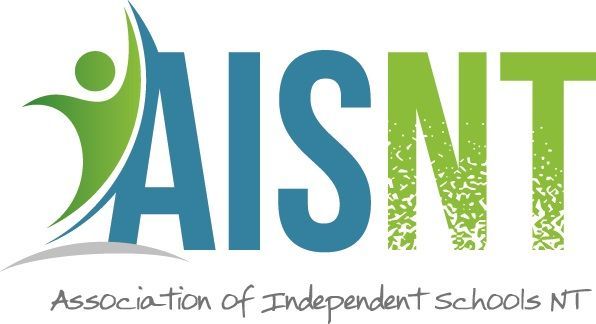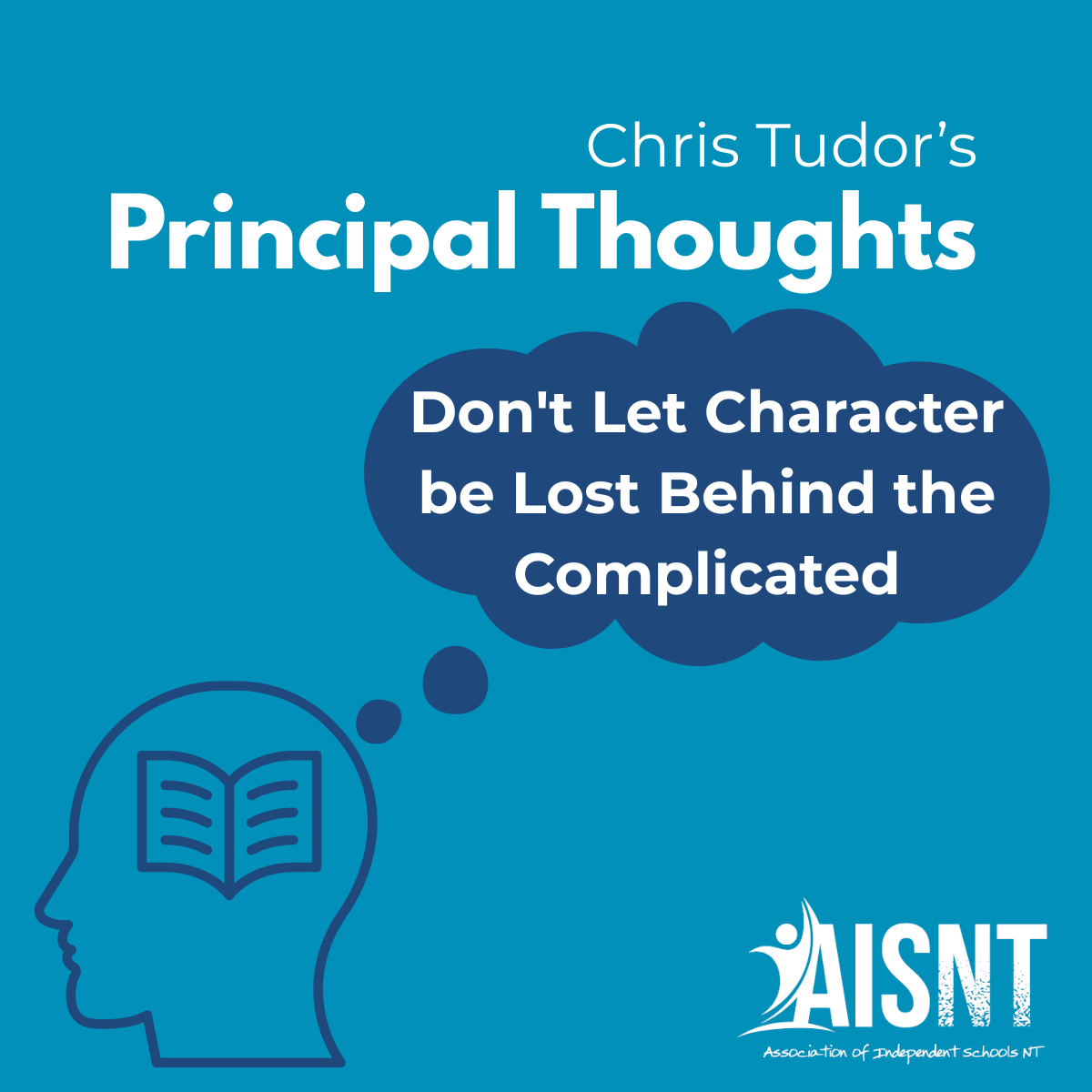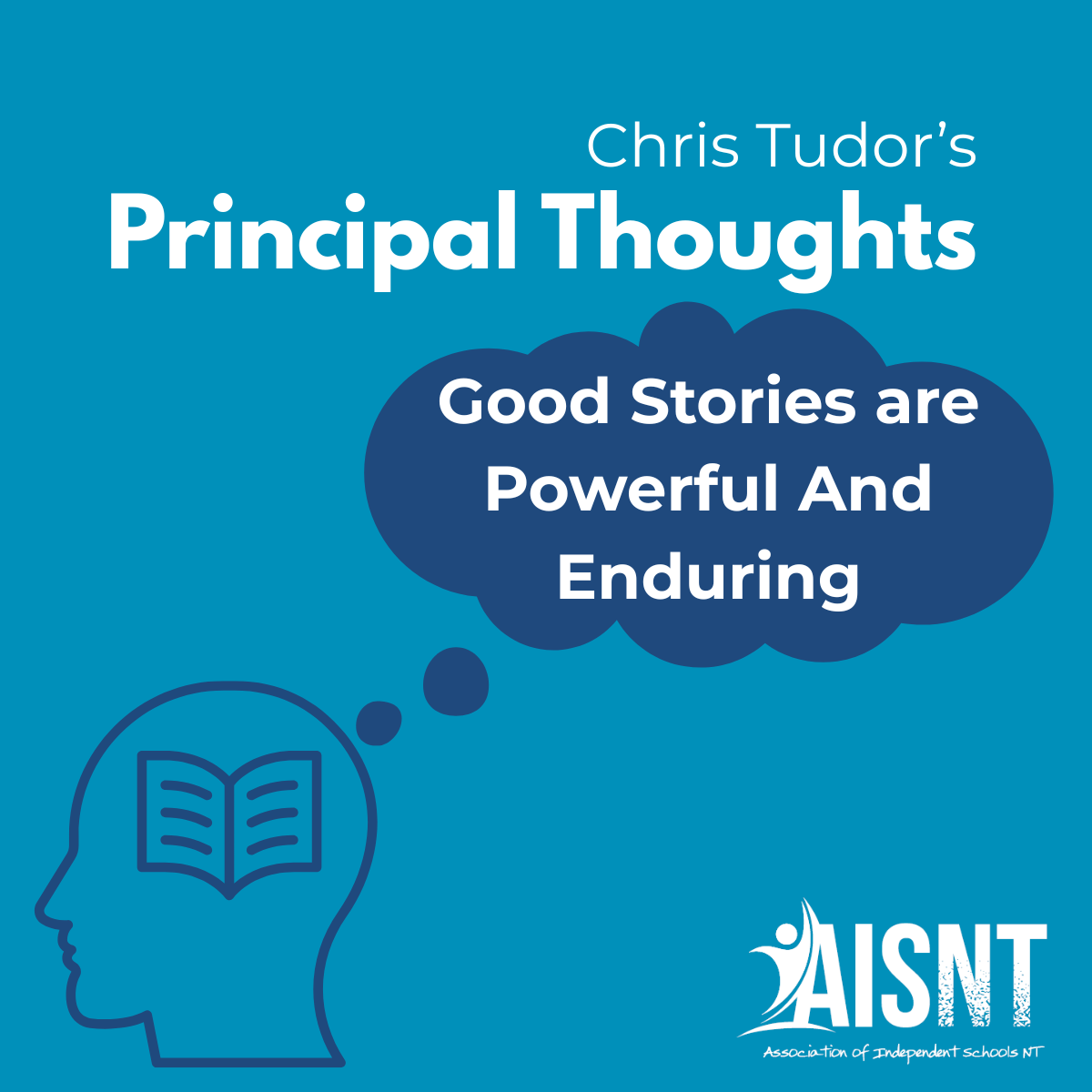Archives or Bust
Last week I was in Darwin going through documents about the history of AISNT. They were very orderly and we worked effectively as an AISNT staff. The process reminded me of a visit I made years ago to Bishop’s College School in Canada. The person who was responsible for the archives gave me sage advice, “get this sorted from the start.”
His school had been going for many years so he understood the potential chaos that could occur if this was neglected. At that time our school was only four and a half years old years, so we had a chance to do that.
Prior to being a school St Philips was a residential college, opening in 1965. We did OK with our archives but possibly could have done better - of course you can always do better with these things. Eventually the history of St Philips was written. The authors were John and Alison Lamont. John was the minister of the Flynn Church in Alice Springs but started his working life as a journalist. Alison was a school teacher and gifted writer. The project took ten years, but the book produced the story of the first fifty years of the College and its predecessor Griffiths House. It is an outstanding publication and becomes the authority when some information needs to be traced or substantiated not only about the College but also aspects of the NT. They both knew the College well, their children were students and John had been a Council member. I think trying to write this in 10 years’ time would have been even harder. Information and stories evaporate or become corrupted, and photos can be a mission to label.
While in Darwin I was asked, what was the date of the formation of AISNT. Whilst my memory was good on some things I struggled to remember the date of formation. The date of the organisation’s Incorporation as an Association under the Act was the 24th of February 1992. But this was not when the association commenced. Then Eureka! Because papers had been filed reasonably by AISNT staff, we were able to find the minutes of the first meeting which was the 30th of January 1988. Problem well and truly solved.
The two schools participating were Kormilda and St Philips. Both were to open in a new form in 1989, Kormilda as the New Kormilda and St Philips adding a school of students initially in years 7- 9 to its primary/secondary boarding houses. Incidentally boarders could attend the school at St Philips or attend another school. The identification of these dates was not only important for the writing of the history but also to complete government applications which require the date when the Association started.
Why good record keeping and archiving is important is that it is really easy for school officials to neglect it, unwisely confident that they will remember in any case. For busy Principals it may not be seen as a priority. But, as we all know, staff change quite frequently in the NT, memory is easily lost, and important information is then gone. So, my plea is to ensure schools have reasonable archiving so that you can trace their history, regardless of who is still there.
I know a number of schools are tackling building projects. Maintaining the history of the project, the need, the journey for decision making, problems that had to be overcome, sources of money, why a particular design was chosen, what were the risks, was the building educationally sound etc. etc. Sometimes schools fail to record this journey well and consequently when those in the know leave, the information can be lost. In the future a plumber may ask something about where the water lines go. Sure they may be shown on the plan, assuming the plans are kept. I once found water coming up in an unpaved section of the drive. No one knew where the water was coming from or where it was going. Whoever had organised this was obviously long gone and wasn’t good at marking “stuff” on the plan. Failing to do this is a very human issue in the life of a busy maintenance person or business manager.
A valuable chapter in my Educational Admin Grad Dip was about the importance of aesthetics in building and landscaping the campus. Personally I disliked handing this very important and creative task solely over to an expert because not only were they expensive but they did not know the College culture with its particular population as well as I did. I preferred to be fully involved in the designing and planning. I didn’t mind if I was irritating to any expert - it had to suit whom we were. Buildings do indeed speak to people and what they say is all important. Their story is read by staff and students every day. I know I’ve written about this before but I think it is so important. Something can be architecturally acceptable but project the feeling of being cold and heartless to the school community. On the other hand, the building design can be really appealing, but regardless, I believe you should be fully engaged in the decision making.
However, the decisions regarding the development of your campus should include everything: colour which may be paint or a natural surface, where paths should go, the development of gardens and other interesting creative spaces using rocks, logs - whatever is available. An old soldier said to me that in setting up a base the designers in the US army waited until it was being used so they could observe where the troops preferred to walk and this was where they put down the paths. It does seem an interesting idea. What is important is the campus must have character be appealing and hopefully something of which the School Community can be truly proud. “This is OUR school!”
Back to documenting decisions. The reasons for doing something particularly significant could be very important but if lost may lead to a future problem. Local knowledge can be so useful - “don’t put it there because it will flood”. This can be a common one in Alice during a long dry spell, but a major shock when a wet time comes.
Besides anything else, the NT is a wonderful place, and all our schools have fascinating stories to tell.
By the way, over the last few days I had the pleasure of watching some of the Central Australian Eisteddfods. What I saw were some of the Primary presentations. They were terrific and such an opportunity for youngsters to perform and develop confidence. There were some great offerings from some of our schools. It is always thought provoking to appreciate the opportunities that country students have. Being a big fish in a smaller pond can really work to a child’s advantage.
To conclude - don’t let important tasks, such as archiving, be neglected even if you and the School are “under the pump”. If you have established a thoughtful, effective system it will only take a little time but in the long term it will make a huge difference not only to the memory of your school but also to the story of the NT, because all of our schools, which are very individual, have much interest to contribute.
Now: Some sayings and thoughts that you might be able to use this week.
Mahatma Gandhi:
“An ounce of patience is worth more than a ton of preaching.”
“The greatness of a nation and its moral progress can be judged by the way its animals are treated”
“A person is but a product of their thoughts. What they think they become.”
“Happiness is when what you think, what you say, and what you do are in harmony”.
Kurt Hahn:
“There is more to us than we know. If we can be made to see it, perhaps for the rest of our lives we will be unwilling to settle for less.”
Related: “There is more in you than you think.”
“I regard it as the foremost task of education to ensure the survival of these qualities: an enterprising curiosity, an undefeatable spirit, tenacity in pursuit, readiness for sensible self-denial, and above all, compassion.”
“It is a sin of the soul to force young people into opinions…but it is culpable neglect not to impel young people into experiences.”
Maria Montessori:
“The goal of early childhood education should be to activate the child’s own natural desire to learn.”
“Do not tell them how to do it. Show them how to do it and do not say a word. If you tell them, they will watch your lips move. If you show them, they will want to do it themselves”.
“Never help a child with a task at which they feel they can succeed”.
Mother Teresa:
“Peace begins with a smile”. In a classroom or at an assembly have each student turn to their neighbor and smile. You may then say, “you have now done a kind act for the day”.
“Yesterday is gone…….”
“Not all of us can do great things, but we can do small things with great love”.
“Kind words can be short and easy to speak, but their echoes are truly endless”
Socrates:
“To find yourself, think for yourself.”
“Education is the kindling of a flame, not the filling of a vessel.”
“A person who is not contented with what they have would not be contented with what they would like to have.”
Socrates was born 470 bc in Athens and died 399 bc. His father was a stonemason and his mother a midwife. As a philosopher he had a major influence on Western philosophy. "Wonderful thoughts are not only generated today but can be mined from the vast journey of the ages."
Written by Chris Tudor



